THE BOOGEYMAN (2023)
Two girls are menaced by a nightmarish presence in their home, but the adults around them won’t accept it’s real...
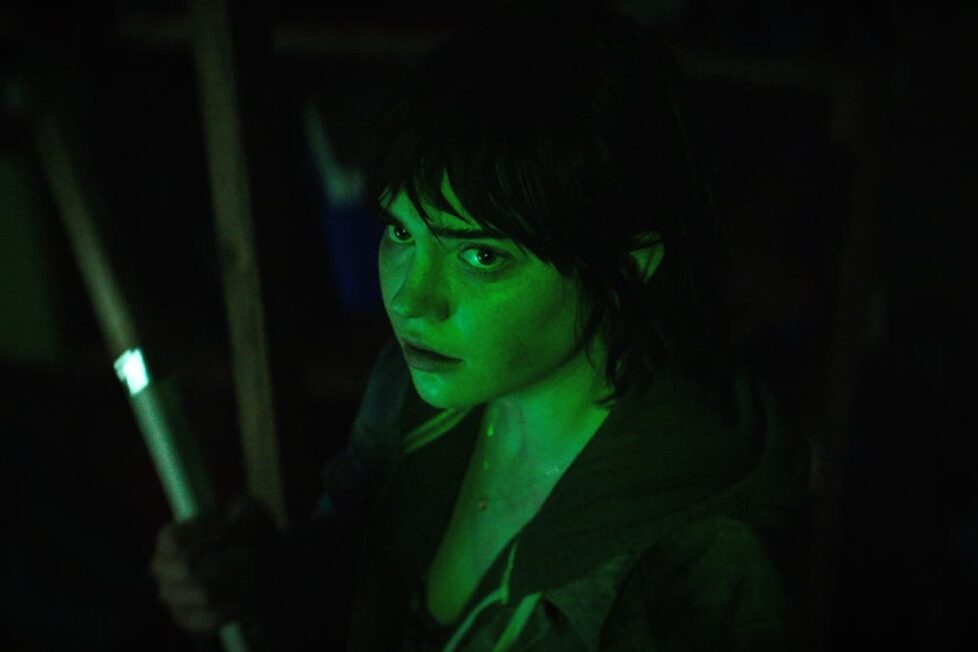
Two girls are menaced by a nightmarish presence in their home, but the adults around them won’t accept it’s real...


Look coldly at the storyline of Showtime’s Yellowjackets, and there’s a great deal that doesn’t convince. But it’s the superb ensemble cast that makes the show so persuasive (and watchable), and perhaps none more so than Sophie Thatcher, who plays the teenage Natalie.
Thatcher had already impressed on the big screen in the sci-fi adventure Prospect (2018), which she followed with a more minor role in The Tomorrow Man (2019), but with The Boogeyman she has a chance to take most of a bigger film’s weight on her shoulders. (The budget here is around ten times Prospect’s, though the runtime is much the same). And she’s the best thing about it, for while there are no huge misfires, there’s not much to totally satisfy either.
Screenwriters Scott Beck and Bryan Woods were responsible for A Quiet Place (2018), but little of that film’s originality and ingenuity is on display here. Indeed, The Boogeyman’s biggest problems are its slightness and lack of imagination. The distance from premise to conclusion isn’t very far, there isn’t much new introduced along the way… and as a result, even at 98 minutes, it feels slow and over-extended. Atmosphere might have helped cover the gap, but as directed by Rob Savage (Host, Dashcam) it’s pretty standard haunted house fare.
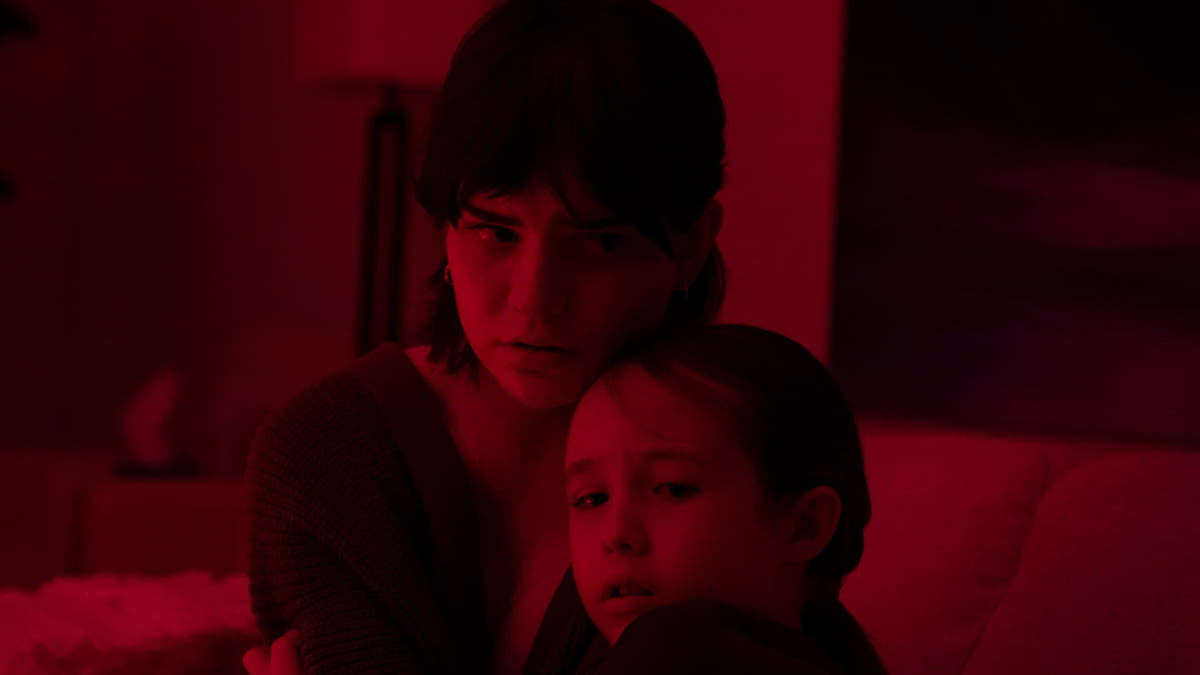
The Stephen King short story on which The Boogyeman is based (17 pages in 1978’s Night Shift anthology) is itself barely more than an idea, even a gag, but it can’t be entirely blamed for the film’s thinness. Beck and Woods begin by following King closely, and even use some of his dialogue: a distraught man (David Dastmalchian) visits psychotherapist Will (Chris Messina) and tells a seemingly fantastical tale about a malevolent entity having killed his children, one at a time.
The short story ends there—with a merrily black twist that Beck and Woods allude to, in a different and more throwaway form, in their own ending—but the movie takes the man’s experience as merely a starting point, and unsurprisingly the entity is soon threatening Will’s own family.
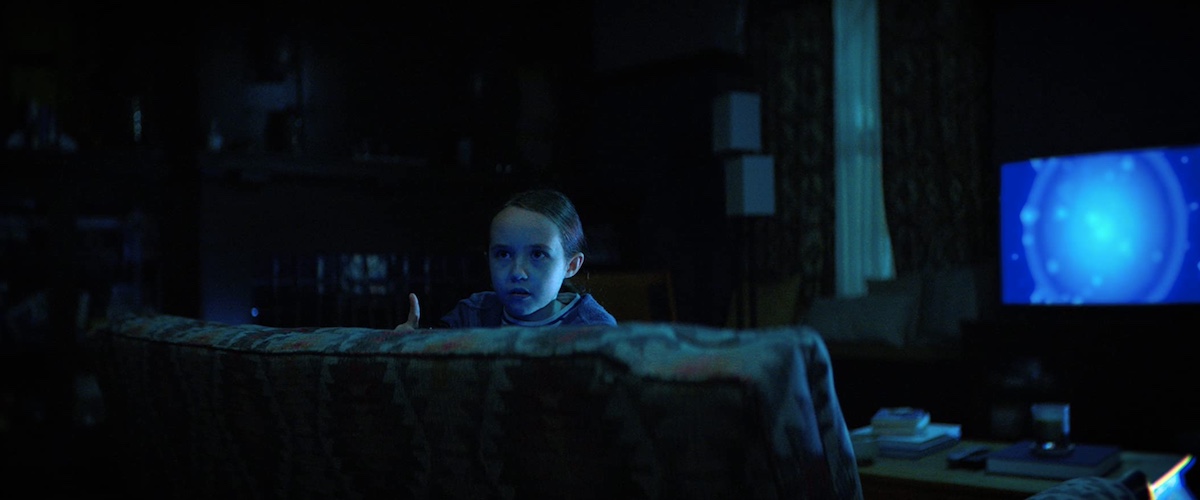
Initially Will, a recent widower, and his younger daughter Sawyer (Vivien Lyra Blair) are to the fore, as are shots of lights and doors (particularly closet doors), which persist throughout. However, as it soon becomes apparent to the audience, if not Will, that Sawyer’s fears of something lurking in the darkness is more than childish imagination, more attention is paid to older sister Sadie (Thatcher). There are some not very interesting digressions into her problems at high school, but the main thrust of the story is her eventual acceptance that Sawyer is correct about the boogeyman, and then her attempts to understand and confront the monster while their father remains disbelieving.
Along the way there are decent scenes, including one where the girls visit a therapist (LisaGay Hamilton) who turns the lights down to prove there’s nothing there—leaving the screen lit only by an eerie red lamp—and another in their late mother’s art studio. There’s also some verve in direction, and the glimpses of what might or might not be the boogeyman are effective, for a while, although inevitably the somewhat insectoid creature becomes less scary the more it’s seen.
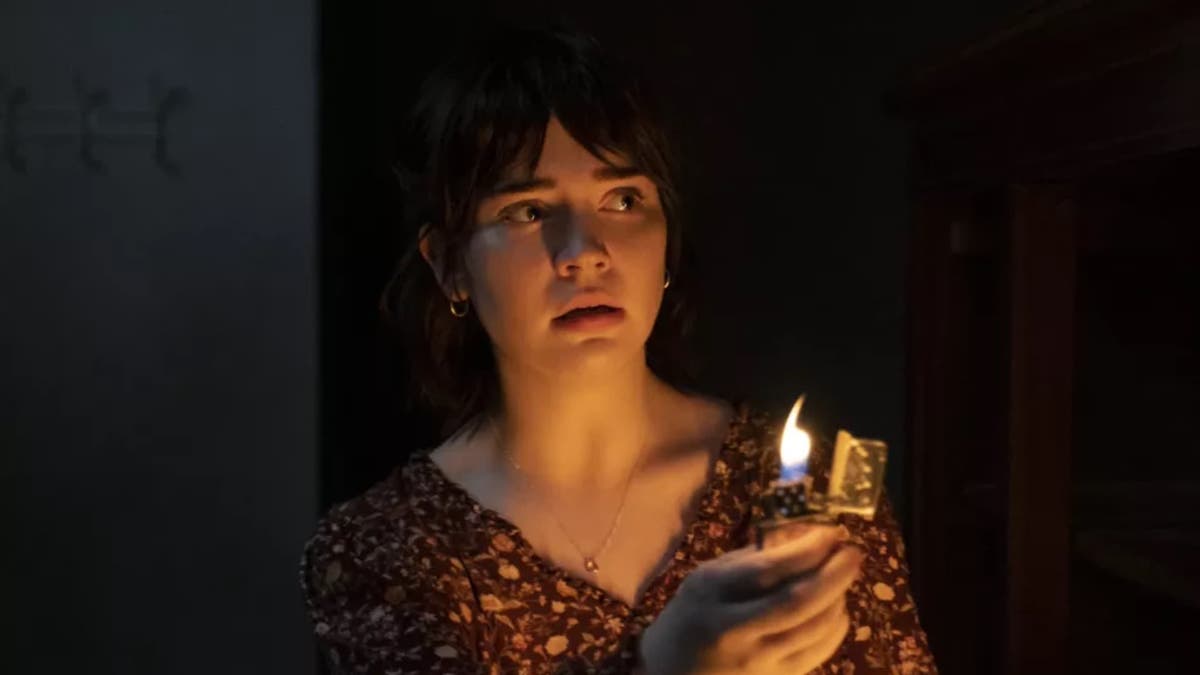
Among the cast, both daughters are convincing—especially Thatcher, playing Sadie with much the same well-judged mixture of sass and vulnerability, adulthood and childhood that she brought to Yellowjackets’ Natalie. Marin Ireland as the widow of Will’s patient also commands attention, albeit in a slightly scenery-chewing way; Dastmalchian (The Suicide Squad) as the patient himself is more intriguing than the dull Messina, although the film does not go as far as King in making the patient an unlikeable character.
None of this is enough to rescue the film from feeling decidedly routine. Importantly, there’s never going to be any real doubt in audience’s minds that the boogeyman does exist. Uncertainty in this area might have made The Boogeyman more compelling, and is just hinted at in the way that it targets people suffering from mental or emotional trauma, making it all too easy for sceptics to believe that it’s “all in the mind”. At times, too, the film seems tempted to use houses as metaphors for minds: unexplained vegetation growing over the walls and ceilings could represent increasingly dominant obsessions, dreads are kept shut in the closet, old clothes stand for memories, and so on.
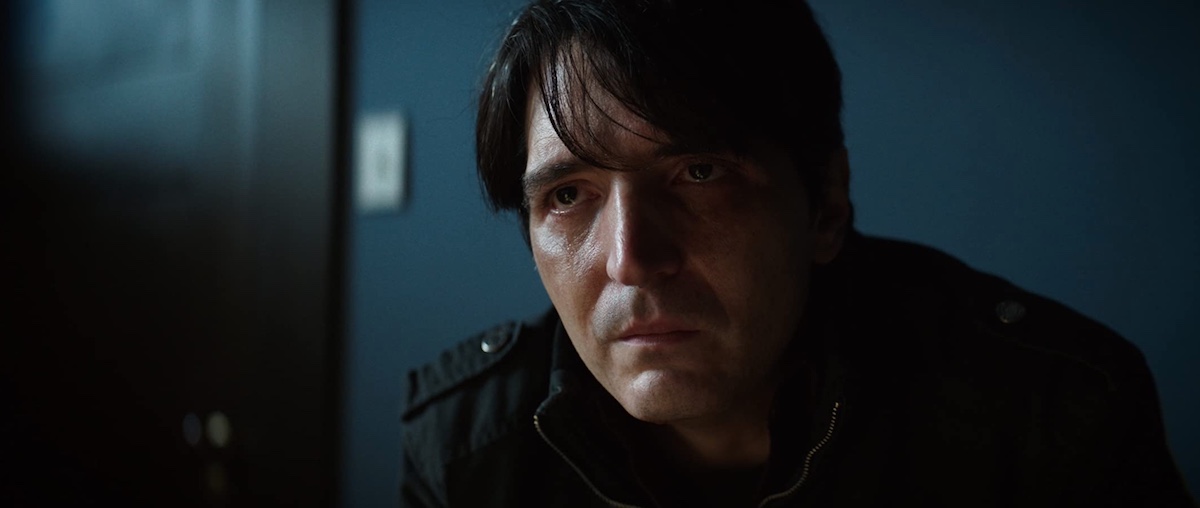
But these ideas aren’t pursued, and so we’re left with a very ordinary girl-vs-monster narrative, complete with an awful lot of switched-off lights and a silver Zippo left behind by her late mother that might as well be labelled “final weapon”. And, by concentrating on the girls more than the father, The Boogeyman moves away from the real horror of King’s story—that the patient’s children did die.
Messina’s Will doesn’t even fear that, because he doesn’t believe in the boogeyman (perhaps he’s no longer close enough to his daughters to understand the truth of their terror). And we don’t fear it either because we know that this kind of movie won’t dare to kill them. The familiar formula is executed adequately well in The Boogeyman, but formula is pretty much all it has to offer.
USA • CANADA | 2023 | 98 MINUTES | 2.39:1 | COLOUR | ENGLISH

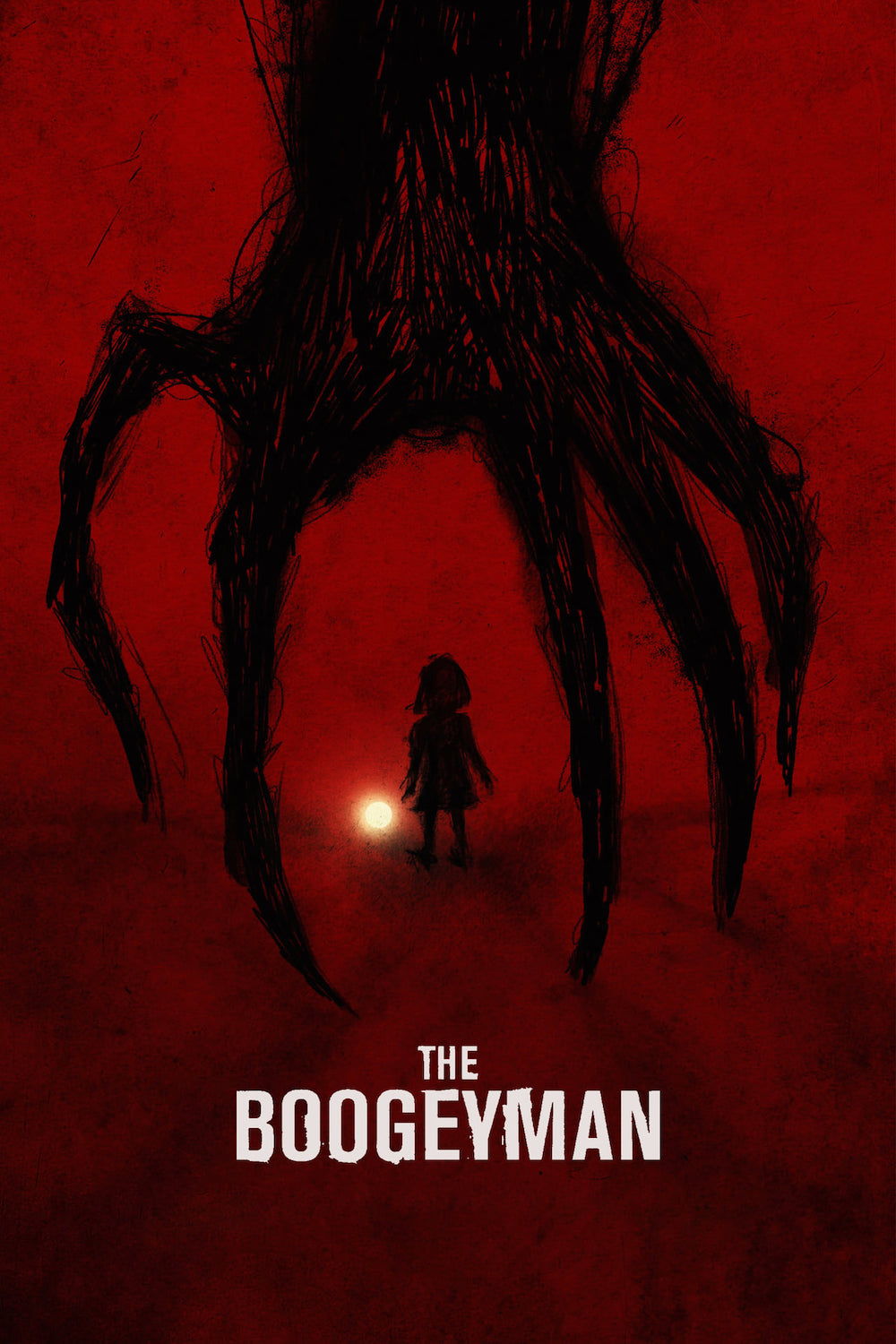
director: Rob Savage.
writers: Scott Beck, Bryan Woods & Mark Heyman (story by Scott Beck & Brian Woods; based on the short story by Stephen King).
starring: Sophie Thatcher, Chris Messina, Vivien Lyra Blair, David Dastmalchian & Marin Ireland.
